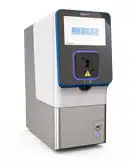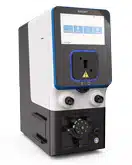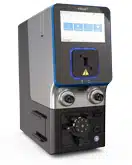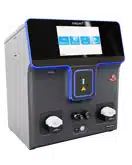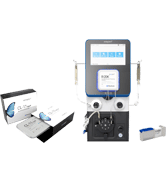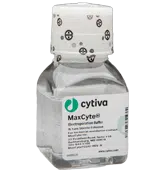MaxCyte Puts A Focus On: Rick Urbanski, Manufacturing Engineer
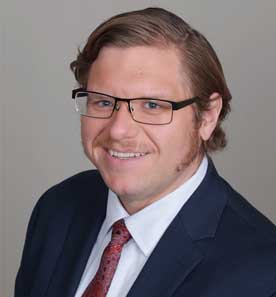
MaxCyte Puts A Focus On: Rick Urbanski, Manufacturing Engineer
Rick Urbanski is a Manufacturing Engineer at MaxCyte, designing and building tooling to support manufacturing operations throughout the MaxCyte product portfolio. Having earned his bachelor of science in mechanical engineering from the University of Maryland, Rick has the training and technical know-how to develop complex machinery and troubleshoot mechanical hiccups, keeping MaxCyte machines at full speed to drive research for our partners around the globe. Let's learn more!
Rick, how do you best describe your position to our partners?
I collaborate with the mechanical engineering team and vendors to design parts and subsystems, keeping DFA/DFM best practices in mind. Specifically, I help design manufacturing solutions for complex, high-precision electromechanical components, especially now that our manufacturing moved in-house and we have a cleanroom on site. I ensure received parts are made to spec and function the way we need them to. I describe what I do as making the machines that make the machines. I also fix things that break, and put processes in place to prevent them from breaking in the future!
What role would you say manufacturing plays at MaxCyte?
The heart of MaxCyte is the products we sell, and we can manufacture everything ourselves. Manufacturing is where the rubber meets the road. We take steps to not simply design products but also to figure out how to manufacture them. And we of course do so in a GMP environment, so the end product can go into labs and hospitals and be used for research and clinical applications.
How will the new building impact manufacturing?
The new building represents a lot of room for growth, both in the available space and the utilities we've had installed. We have a new cleanroom now! It's a giant, beautiful space we will use to support and manufacture processing assemblies in the coming years. The new building will allow us to scale up the manufacturing processes and speed to increase the output of what we create. We also have a lot more space - including a whole machine shop - for developing tools and engineering equipment. The new space is awesome.
In what ways do you think manufacturing helps solve challenges MaxCyte's partners face?
Well, MaxCyte couldn't solve any of our customers' problems without manufacturing. They can't rightly use our technology without the product itself. If things break or need adjustments, manufacturing comes in. We quickly and efficiently develop solutions. Additionally, our in-house manufacturing solves the supply chain issues our partners might have faced if we used third-party vendors. We always have stock, even during the pandemic. We can better control the manufacturing process when we have all manufacturing here, in-house.
What is your favorite part about your role here at MaxCyte?
I enjoy most that I get to talk to many different teams: instrumentation manufacturing, cleanroom, design engineers, sales and marketing, technical support, biologists and scientists. There's never a week that goes by that I'm not talking to at least four different departments about this or that. It's great. My favorite part of working here is the people. I appreciate that kind of small company feel but doing big things.
During your time at MaxCyte, what do you consider to be your biggest accomplishment?
There are several instrument projects I am particularly proud to have worked on. However, I would like to highlight the Sardine Club! We started in January 2022 when we were all going through the winter doldrums. We figured the one thing everyone loves no matter who they are is smelly, preserved, canned fish. So we decided to start a little club. Each week, we open up a couple of cans of sardines and eat 'em and talk about 'em, and there's even a newsletter that goes out. It's pretty neat because it brings people together. We have people from our field support team across the world, people in Europe and Asia, and when they come back, if they're here on Friday afternoon, they'll come to Sardine Club, and we'll open a couple of cans in their honor!
